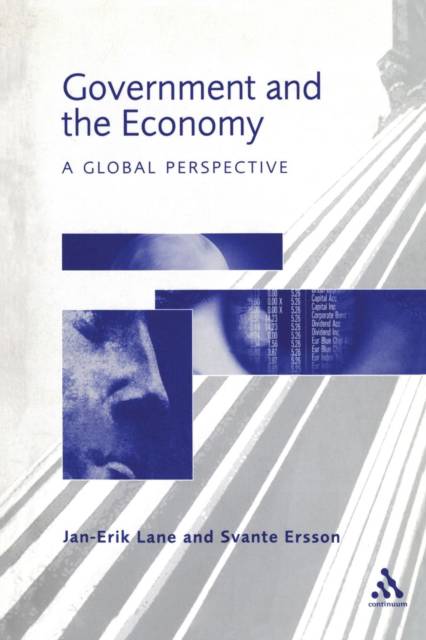
- Afhalen na 1 uur in een winkel met voorraad
- Gratis thuislevering in België vanaf € 30
- Ruim aanbod met 7 miljoen producten
- Afhalen na 1 uur in een winkel met voorraad
- Gratis thuislevering in België vanaf € 30
- Ruim aanbod met 7 miljoen producten
Omschrijving
Globalization is a common theme in the discourse of post-industrial society, yet it is a process that is ill understood. Is it basically a technological phenomenon or does its immense impulse derive from economic factors? Should it be regulated by government, and at what level? Questions such as these are debated continuously in the mass media, yet there are no simple answers available, as globalization is not only an amporphous but also a contested phenomenon.Government and the Economy is a completely reworked edition of Jan-Erik Lane and Svante Ersson's popular text Comparative Political Economy, which the authors have updated for the twenty-first century. They present a profound analysis of how globalization changes the boundaries between state and market, public and private, and government and society. When the state retreats and markets expand, what are the major outcomes? And what is driving this process of redefining the roles of government and the tasks of society?The book offers a penetrating survey of the differences between the countries of the world in terms of their economy and polity, and a forceful critique of the prevailing models in political economy. Lane and Ersson look closely at Public Choice theories which emphasize the role of markets in accomplishing efficient solutions to human interaction while modeling governments as enhancing state failure. They argue that such accounts are misguided. The need for govenment in the global market economy is as strong as it is in relation to the domestic economy. They go on to suggest that the most efficient and equitable means of strengthening government in the global market place, without creating one-world government, is the reform and empowerment of IGOs.
Specificaties
Betrokkenen
- Auteur(s):
- Uitgeverij:
Inhoud
- Aantal bladzijden:
- 352
- Taal:
- Engels
Eigenschappen
- Productcode (EAN):
- 9780826454928
- Verschijningsdatum:
- 14/02/2002
- Uitvoering:
- Paperback
- Formaat:
- Trade paperback (VS)
- Afmetingen:
- 169 mm x 224 mm
- Gewicht:
- 526 g

Alleen bij Standaard Boekhandel
Beoordelingen
We publiceren alleen reviews die voldoen aan de voorwaarden voor reviews. Bekijk onze voorwaarden voor reviews.











